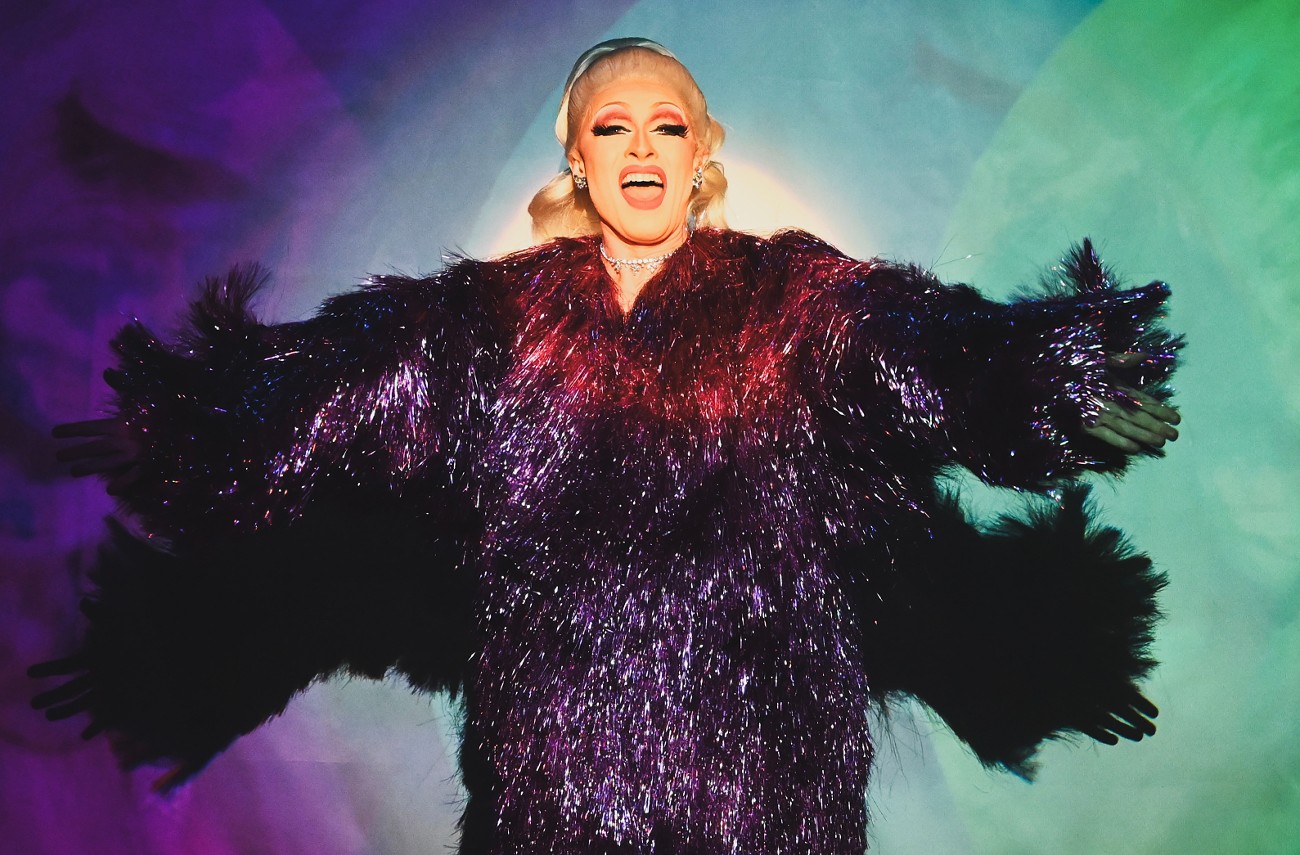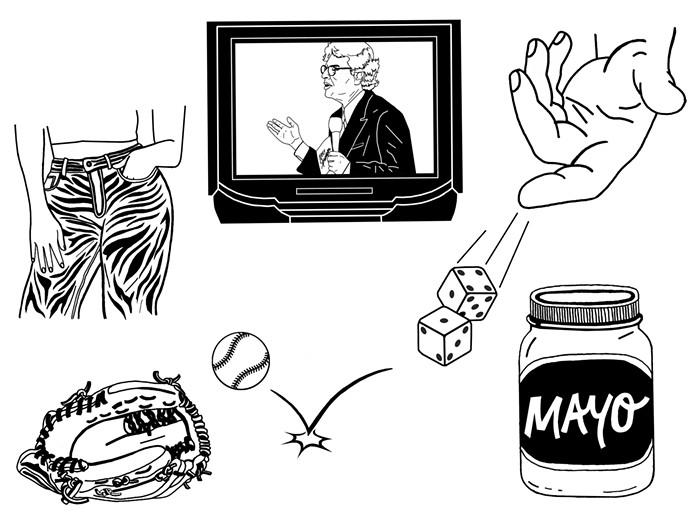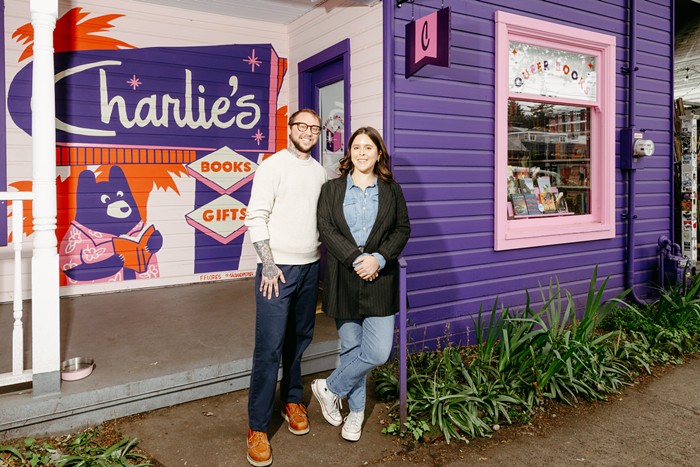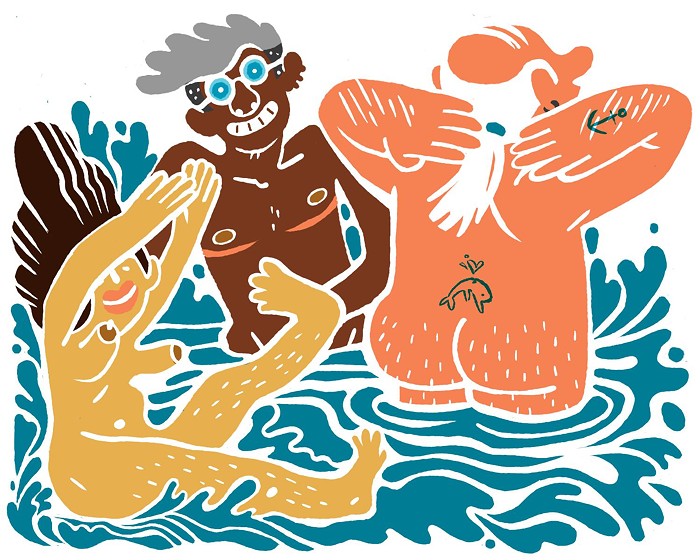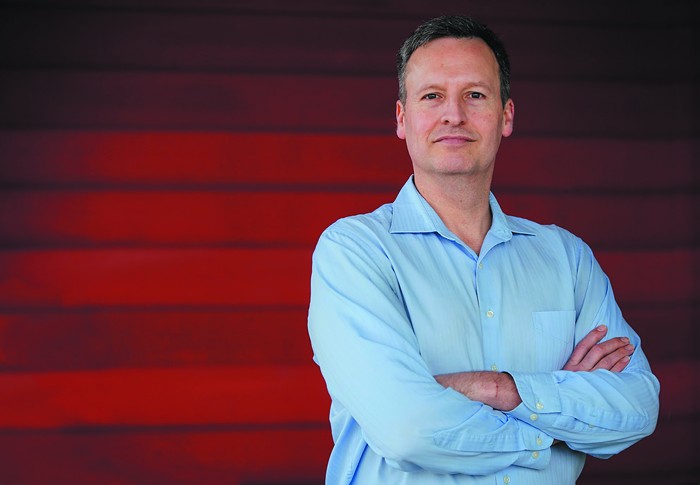The Books of Love
Charlie’s Queer Books Is a Welcoming Space for Seattle’s LGBTQ+ Lit Nerds
The Future of HIV Treatment Is Injectable
Promising Drugs Could Expand Treatment–If We Get Out of Our Own Way
What’s Next for Denny Blaine?
Maybe New Rules, but Certainly Fewer Thorns
Getting High with Seattle Cheer
A Very Queer Play Date
Dave Upthegrove Wants to Save the Trees
...And Become Washington State’s First Gay Executive While He’s at It
Queer Issue 2024 Pickup Locations
Looking for a Copy of This Year’s Queer Issue? You Can Find One at the Following Locations.
Can Seattle Drag Afford to Stay Weird?
Rising Costs, and Fewer Beginner-Friendly Venues, Are Sanitizing Seattle’s Drag Scene
50 Years of Queers
Gay Betrayals! Rich Prudes! Queer Futures! And an Absolutely Stuffed Pride Calendar!
The Gays Who Slayed and the Gays Who Betrayed
Not Every Queer Politician Is an “Ally”
Letters to Our Younger Trans Selves
What We Wish We Knew
The Reality Behind the Story I Told The Stranger
I Said I Was Detrans, but Really I Was Struggling
Out of This World
Forming the SassyBlack Universe
The Futures of Seattle’s Gayborhood
An Architect, an Urban Planner, a Documentarian, an Academic, and a Business Owner Imagine What Capitol Hill Will Look Like in 50 Years
The Biggest Pride Month 2024 Events in Seattle
Festivals, Parties, and More All Throughout June
In the fall of 2022, Seattle drag queen and then-newcomer This Girl encountered a dancing dialectic in the Kremwerk basement. Rowan Ruthless was doing a comedic Fergie cosplay number as part of a Black Eyed Peas-themed drag night, using a water bottle to simulate wetting her pants.
Reading Ruthless’s faux pee against the grain, This Girl interpreted her seasoned colleague’s urine-forward number as a lesson in artistry and economics.
“That shit’s so funny,” This Girl said. “But also Rowan is simultaneously the most beautiful, glorious supermodel of Seattle… [and] someone who deeply understands the balance between that classic, messy, grimy Seattle drag and also glamor.”
Ruthless’s piss bit offered This Girl more than just an intermission from Seattle drag’s recent “showgirl, showgirl, showgirl everywhere” homogenization: It also showed her that artistic versatility and professional success go hand in hand.
“That’s maybe where some of the wires get crossed,” This Girl said. “I think for all of the glamor that you see now, a good majority of those girls started off doing weird, dirty, messy stuff in the bottom of the Kremwerk basement.”
That is, prominent Seattle drag queens whose glamorous standard This Girl and other up-and-coming artists strove to attain—often at great economic cost—were successful because they had local practice weaving grime and glamor together, not because they pulled off Drag Race-esque allure alone.
It’s easy to judge up-and-comers for crossing their wires and pursuing the markers of seasoned drag queens’ success, skimming over their iconoclastic paths to more regular gigs and incomes; but entry- and mid-level queens are confronting a different financial and artistic landscape than their predecessors did. The same macroeconomic forces causing housing and other costs to skyrocket are driving drag artists to make tough choices about the balance between business and art and between making steadier money through tried-and-true looks or hustling to stand out. The dwindling number of beginner-friendly venues, in addition to disadvantageous financial agreements with many venue owners and Drag Race-informed viewer tastes, has imposed a higher barrier to entry for drag performers as well as a longer path to (often paltry) profitability. Artistic experimentation feels riskier when rent’s rising.
***

Tacoma-based drag and burlesque performer Lavish The’Jewel first began doing drag in the Seattle area seven years ago, getting her start at beginner-friendly venues like WERKshop Wednesdays, the precursor to Kremwerk’s Studio Saturdays. While The’Jewel has established her presence in Seattle and refined her craft over time, she’s also seen many alternative and entry-level spaces lose their edge or fold altogether. Some establishments, like R Place, are gone, period; others have changed their drag programming to match general consumer tastes instead of nurturing an ecosystem of drag performers.
In The’Jewel’s eyes, the growing popularity of drag through Ru Paul’s Drag Race carries artistic and economic consequences. Audiences now expect drag artists to sport more upscale looks like the ones they see on TV, she said; performers often choose between “buying a wig or paying rent” in pursuit of embodying that perceived standard, which flattens the kind of drag Seattleites encounter across the city.
“It sucks because as inspiring as drag can be, those kind of off-kilter shows… inspire me to not be afraid to do something stupid or weird or silly,” The’Jewel said. “It kind of gives you a different view of what drag is, because it really is everything.”
This Girl asserts that Seattle-based drag star Bosco’s 2022 appearance on—and podium finish in—Ru Paul’s Drag Race had an especial effect on the local scene and unintentionally homogenized much of it.
“I say this entirely with love for Bosco, but I love to say that we’re living in a post-Bosco-on-Drag-Race world,” This Girl said. “When I first started [doing drag in 2021], it felt acceptable to be buying Leg Avenue lingerie and Amazon bodysuits and call it a day, and… almost instantly [after Bosco’s Drag Race appearance]… the city had a completely new standard.”
That new standard encouraged This Girl to spend “a heinous” amount of money in that first “post-Bosco year” trying to match that new standard. Thanks to her faux-Fergie lesson at Kremwek, in addition to the input of drag-mentor friends and a more disciplined approach to her money and time, she’s since learned to be more economical with how she constructs her looks, including by sewing many of her own clothes.
Beau Degas, a drag artist who performs at Clock-Out Lounge’s Tush and Queer/Bar’s Bang the Gong and who’s known for her campy and comedic numbers, first performed in public in January 2018 at a now-defunct show called Fresh (alongside Bosco, whose team didn’t respond to The Stranger’s request for comment). She thinks that, without spaces for new performers to break in and “make a name for [themselves],” it will be very hard for up-and-coming performers to get booked more often the way she has, or to make any viable income from this work.
Degas also criticized the homogenization of Seattle drag, typified by “a different person with the same look doing the same schtick.” But she acknowledged that she accepts some gigs for monetary gain, not because they’re spaces that will “push me artistically,” though she makes a point to take gigs that make her feel like an “artist first,” rather than “just a performer.”
Complementing drag work with a career as a cook lets Degas balance money, identity, and art. Lavish The’Jewel (aesthetician) and This Girl (social worker) do too. Degas said “drag isn’t for everybody” as a profession— whether full- or part-time—and it requires passion and hard work, especially since performers often confront a two-year financial deficit while they hustle to land regular gigs. “I feel like the main thing is that you just need to be the right person,” she said.
Through her role on the permanent cast of Clock-Out Lounge’s Tush in Beacon Hill, Beau Degas has taken advantage of the program as a monthly, two-night destination for artistic experimentation and as a reliable income stream. “We’ve created this space where people expect a certain level of creativity, innovation, or artistic sense, and the venue pays us really well,” she said.
Tush was founded in 2018 by Betty Wetter in collaboration with Clock-Out Lounge owner Jodi Ecklund. Unlike many other owners, who stipulate a minimum number of show attendees or else force performers to pay for lost revenue, Ecklund and the Clock-Out Lounge offer performers fair pay and collaborate with Wetter to monetize the event sustainably. Ecklund encouraged Wetter and the cast to increase ticket prices by $5 this past year, for example, to ensure that the show’s performers could meet Seattle’s rising cost of living.
To Wetter, although performers shouldn’t put all their eggs in one basket or rely solely on a venue’s owner, “a show really is as good as the love that the owner puts into it.” Tush’s function as a sandbox has let the cast develop a local reputation and land other gigs. Wetter, who emcees Tush shows, now works full-time as a drag artist, doing everything from hosting drag bingo and fundraisers to officiating weddings.
Ecklund, meanwhile, said she is “grateful that Tush is able to remain a viable show for both parties,” especially as venues operate on “razor-thin margins” due to rising costs. She said she believes that artists should be able to make a living making their art and, as a queer-identifying person, sees developing community as “the heartbeat of everything I do.”

This Girl likened finding a supportive commercial space like Clock-Out Lounge to striking gold. Some interviewees also recognized Queer/Bar for its artist-friendly efforts. When performers can focus on their acts rather than pushing tickets, their performances tend to be of higher quality and can attract a more sustained following organically. “Can we ever readily count on businesses or capital to make sure we have a space to create art?” This Girl hedged. “Of course not.” The’Jewel similarly asserted that more owners should pay more since they often make money “hand over fist” without paying performers what they’re worth; she also noted that Seattle’s drag scene will remain on its homogenizing path as long as discrimination and gatekeeping prevent racial and gender diversity in its greenrooms.
Yet Betty Wetter contended that it’s “past time for performers to be asking for what they’re worth,” and to be more disciplined about refusing exploitative rates and conditions. “You’re kind of appeasing [owners and managers by] saying, ‘I’ll take this amount of money,’ when in all honesty, they can pay you more [and] they do have the money,” she said.
Wetter knows spaces like Tush are rare sources of artistic and economic vibrancy, even if they shouldn’t be. “It’s so valuable to me and I am eternally grateful and I’m also always so scared it’s just gonna disappear one day,” she said.
Leaning into the weird has helped Tush stay viable despite the lingering threat of its impermanence, she concluded.
“We’re all swimming in this pool, and you pull your head above the water, and you look around and see there’s like so many people out sunbathing and living a different life than you are in the pool,” Wetter waxed. “It comes back to leaning into what you’re good at, because there are people who want to follow that. There are people who want to see that.”
Inspired to see a show? We've got tons of drag shows, brunches, and performances listed in our calendar, EverOut!
